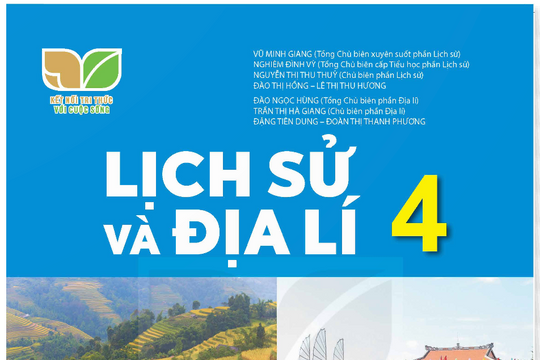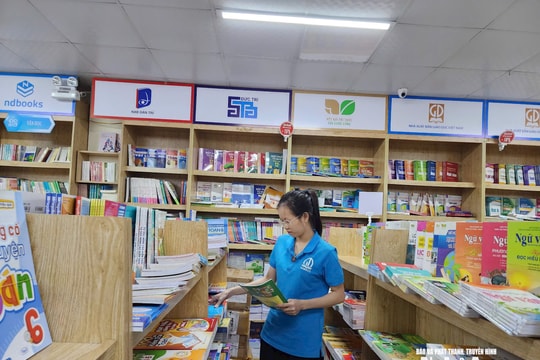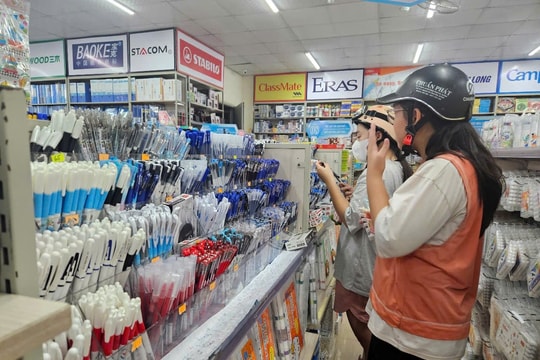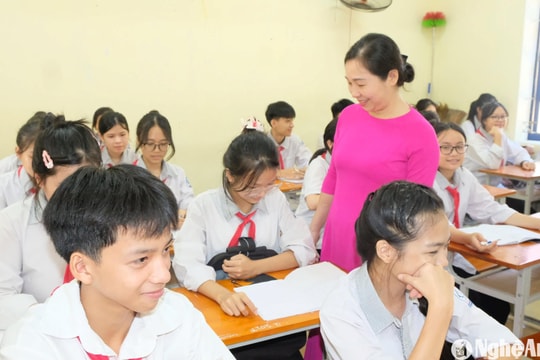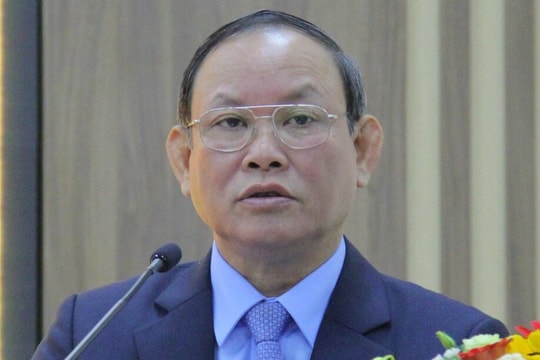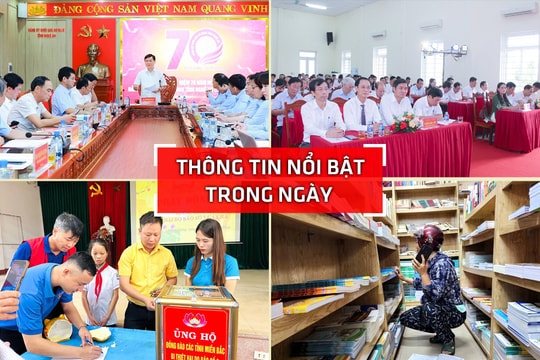Proposal to avoid 'term thinking' in textbook innovation
Historian Duong Trung Quoc said that educational innovation is very important, so the development of programs and compilation of new textbooks must follow the correct process, avoiding creating a feeling of "term thinking".
On December 23, Deputy Prime Minister Vu Duc Dam invited leaders of the Ministry of Education and Training and experts from the Vietnam Union of Science and Technology Associations, the Association of Mathematics, Biology, Geography, History, Physics, Chemistry, etc. to contribute their opinions on education innovation in general and the implementation of the Project on curriculum and textbook innovation in particular.
The Ministry of Education's report said that the steps to implement the Project on curriculum and textbook innovation according to the National Assembly's resolution are being urgently carried out. Although the funding for the project has not yet been allocated, to ensure progress, the Ministry of Education has proactively carried out preparatory work. The Ministry has also published the draft of the overall program for public consultation.
 |
Deputy Prime Minister Vu Duc Dam chaired the meeting to listen to comments. Photo: HT |
Deputy Minister of Education Nguyen Vinh Hien said that the implementation of fundamental and comprehensive reform of education and training according to the Central Resolution is being prepared and carried out according to a very clear and strict roadmap. Currently, the Ministry has built, consulted and reported to the National Education Council the structure of the national education system and the national qualifications framework, and is completing it to submit to the Prime Minister for promulgation.
"In the preparation phase of building the overall program, there is no official participation of scientific associations, but the associations will directly contribute when building the subject program and then compiling textbooks," Mr. Hien informed.
Leaders and experts of professional associations attending the meeting contributed many frank opinions. Most acknowledged the efforts of the education sector in recent times, but believed that the Ministry of Education needs to do a better job of organizing opinions through a formal mechanism, binding responsibilities and ensuring implementation conditions, not just widely collecting opinions online. It is especially important to pay attention to feedback and analysis of opinions that are not accepted, to avoid making those who give opinions think that the Ministry does not truly respect and seek advice.
Historian Duong Trung Quoc believes that educational innovation is a very important matter, receiving the attention of scientists, experts, the general public as well as the whole society. Therefore, the development of the program and the compilation of new textbooks must follow a very systematic process, with priority and must be thoroughly explained and prepared, etc., to avoid creating a feeling of "term thinking".
"If it is implemented hastily, will the new minister's term continue and how will the old problem be resolved?", Mr. Quoc wondered.
 |
Historian Duong Trung Quoc. Photo: HT |
Agreeing with the above opinion, Chairman of the Vietnam Chemistry Association Le Quoc Khanh commented: "The Ministry of Education needs to go step by step and not do it horizontally."
Chairman of the Vietnam Physics Association Nguyen Dai Hung and Professor Phan Huy Le suggested that the Ministry should demonstrate more democracy and openness in receiving comments and feedback from scientists. The experts fully respect the Ministry's expertise in educational science and its role in state management, but would like to have more opportunities to directly exchange and debate to reach consensus.
"The Ministry has established a reform committee and collected opinions, but only within the Ministry of Education, and too few opinions from professional associations and experts. In the process of drafting the general education program, it should have sought the opinions of experts and professional associations, but the Ministry did very little. For example, no experts participated in the History subject (initially, the Ministry invited Associate Professor Nghiem Dinh Vy, but because of disagreement with the reform committee, they later did not participate)," Professor Le said, adding that this lacked democracy.
Professor Nguyen Minh Thuyet also agreed that there must be an official mechanism for collecting opinions and working professionally with scientific associations. "We need truly in-depth experts to sit down and discuss the content of the new curriculum and textbooks. In addition to pedagogues, there must be leading scientists to combine educational science and specialized science," Professor Thuyet expressed.
The former Deputy Chairman of the National Assembly's Committee on Culture, Education, Youth and Children also proposed further enhancing the role of the National Committee on Educational Innovation, thereby deciding on important issues of education today.
Thanking scientists and experts for their dedication and contributions to the education cause, Deputy Prime Minister Vu Duc Dam requested the Ministry of Education to have a practical and effective mechanism to mobilize experts, scientists, teachers, etc. to participate in contributing to the comprehensive fundamental innovation of education and training.
"It is necessary to improve the way of collecting opinions, in which it is important to mobilize scientific associations and experts to participate in research, contribute opinions and give feedback through mechanisms that link responsibility with ensuring implementation conditions. It is especially necessary to discuss and clarify issues with different opinions to reach a consensus on the most correct and beneficial solutions," the Deputy Prime Minister noted.
The Deputy Prime Minister also "ordered" the federation of associations to contribute ideas and participate in the draft of the national education system structure and the national qualifications framework that the Ministry is finalizing to submit to the Prime Minister for promulgation. The Deputy Prime Minister will directly listen, receive, and exchange ideas with the federation of associations and request the Ministry of Education to increase the reception and direct exchange of ideas with the Associations.
Regarding the project to innovate the curriculum and textbooks, the Deputy Prime Minister requested the Ministry of Education to discuss and agree with the federation of associations on the content and necessary conditions to ensure that the federation of associations and scientific associations participate right from the process of building the overall curriculum, in addition to mobilizing and inviting scientists to participate as experts as the Ministry has planned.
According to VNE
| RELATED NEWS |
|---|

.jpg)
